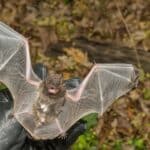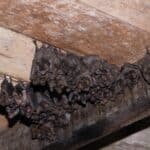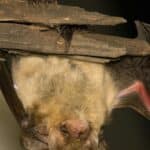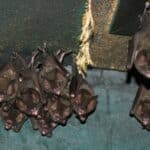Rats are relatively large rodents and are common household pests. Not only are they rampant, but they are some of the most destructive and dangerous nuisances you can have in your home. They’re agile, clever, and talk to each other. They can even wriggle up to any potential entry points to your home.
Here are four reasons why rats are dangerous and you must do something about them right away.
Reasons Why Rats Are Dangerous

Damage To Homes
Rats are notorious for being able to gnaw through nearly anything, and their teeth never stop growing. That means they can damage many things on your property.
Structural Damage
Rats constantly chew at the fundamental wood structure of homes, including floor joists and studs, and even dig tunnels beneath a concrete foundation. They work their way through walls, hollows, and other potential access points (about the size of a quarter), resulting in severed insulation and damaged weather-proofing materials.
Worse still, they are likely to nest underneath building foundations, within walls, ceilings, and furniture, increasing rat populations.
When structures are gnawed, their solidity is weakened, causing structural failure – your house could collapse if this continues long enough.
Electrical Wiring
When rats chew through electrical wires, it can cause malfunction or short circuits in the appliances. There is always the risk of combustion – damaged wires spark and overheat. House fires often ignite due to faulty or frayed wiring.
Infected Rats Transmit Disease
Rats and other rodents carry dozens of terrible diseases and are seriously detrimental from the public health perspective – from humans to pets and other animals.
Bubonic Plague
The bubonic plague – also called the “black death” – is a severe, acute infectious disease spread by the bite of infected fleas that travel on rats.
Rodent Feces and Urine
Rodent feces can spread bacteria, contaminate food, and cause allergic reactions. Their feces can cause the following diseases:
- Hantavirus – Hantavirus is a severe and sometimes lethal respiratory infection that people get by accidentally touching or breathing in virus-containing particles from a rat’s urine and droppings.
- Leptospirosis – Rats usually urinate when they defecate, which can cause contamination and the spread of leptospirosis
- Salmonellosis – Salmonellosis is highly infectious and a type of food poisoning spread by rat feces, primarily through ingesting contaminated food and drinking water.
Rat Bites and Scratches
Rat Bite Fever – People get rat-bite fever if an infected rat bites or scratches them, or from direct contact with a dead rat. It can also be acquired through consuming food contaminated with an infected rodent’s saliva. In some instances, contact with rat droppings can transmit the bacteria. Although you may feel alright and walk off from a rat bite or scratch with just over a little prickly wound, it’s crucial to visit a doctor immediately.
Rats Can Sense Danger
These pests feel when there’s a threat and can notice changes around them because they know our behavior patterns. Most people don’t understand what intelligent nuisances they are dealing with and solely use indecent rat bait or snap traps.
Rats can be treacherous and very angry, especially when they are in danger. It’s best not to be aggressive and pushy towards the rat because a cornered rat would not hesitate to attack a human.
Rats Contaminate and Waste Food
Sad to say, rats and similar rodents are known for their ability to find their way into your food source. They have an uncommonly powerful sense of smell. They can find food through doors, containers, and even walls and quickly chew through any materials to obtain their reward. Rodents infiltrate your home by tracking the fragrance of food.
If mice are left unchecked, they ingest and spread incessantly. Eating foods that rats and mice have infected poses a huge health risk. What’s more, rats and rodents occupying space in your storage aren’t the only health hazards. Having to throw out food that has been in contact with the rodents is a shame and can become very costly.
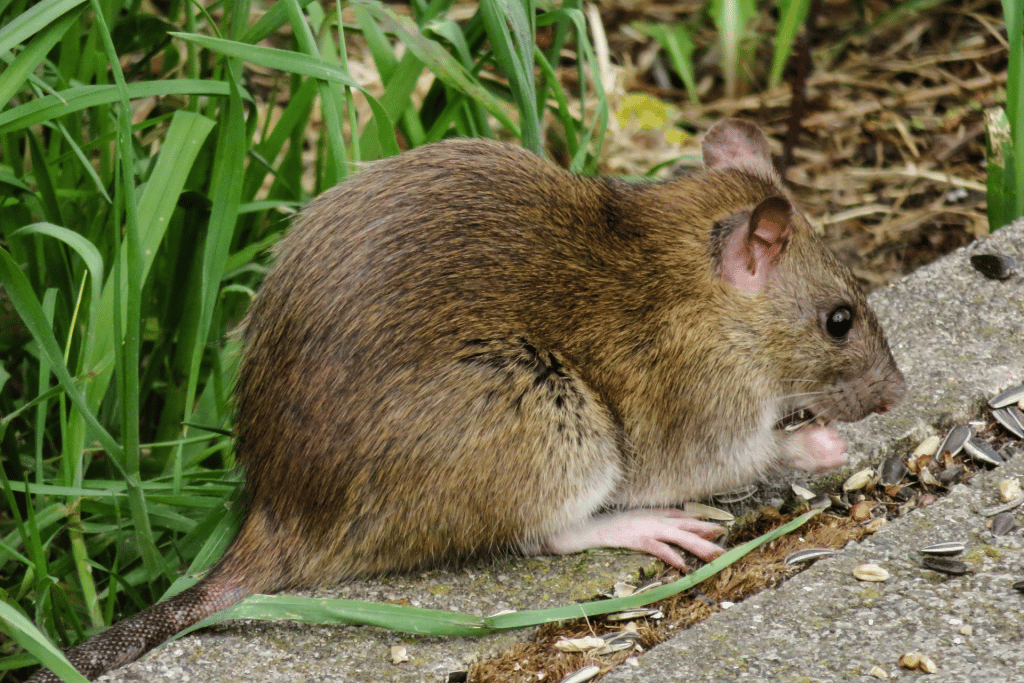
How To Know If You Have Rats?
Rats are likely to avoid humans as much as possible. They are somewhat secretive, except when your home has a high population.
Rat infestations are widespread, specifically during cold seasons. Common signs of rodent infestation include rat droppings, holes, grease marks along floorboards and walls, and shredded materials. Other signs are foot and tail marks, and scratching sounds on the walls or ceilings.
Getting Rid of Rat Infestation!
Once you have confirmed an infestation, your main priority is to get rid of the rats. Although you might be tempted to eradicate the specific pest that bit you and use improper removal procedures, the fact remains that all you are doing is hurting one tiny, clever animal striving to live much as we do.
If you think you have a rat problem, get help from a professional rodent control expert immediately. Wildside Wildlife Removal & Prevention has the expertise and resources to give your home a quick inspection and scout out for mice and rats. We are simply one call away from properly and safely performing the removal, decontamination, and cleanup.
Need the most effective way to control rats? Call us now!


